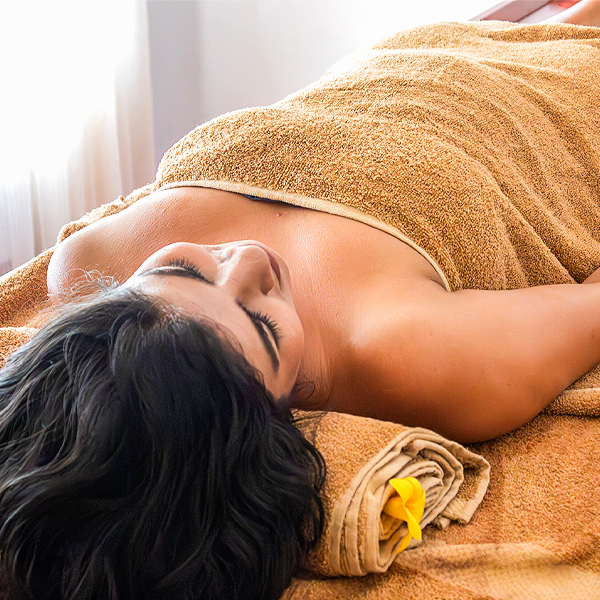Sexual Disorders (Klaibya)
Sexual disorders affect millions of people worldwide and can significantly impact emotional well-being, relationships, and overall quality of life. These conditions may stem from physical, psychological, or hormonal imbalances, leading to distress and frustration. When left untreated, they can cause anxiety, depression, low self-esteem, and strained relationships. Seeking timely intervention is essential to restore sexual health and enhance overall happiness.
Erectile Dysfunction (ED), Premature Ejaculation (PE), Low Libido, Female Sexual Arousal Disorder (FSAD), Anorgasmia, Vaginismus, and Dyspareunia are common sexual disorders affecting both men and women. ED and PE primarily affect men, with ED causing difficulty in maintaining an erection and PE leading to early ejaculation. Low libido affects both genders, resulting in a lack of sexual desire. FSAD makes it difficult for women to become aroused, whereas anorgasmia leads to difficulty in reaching orgasm. Vaginismus and Dyspareunia cause pain during intercourse, often making intimacy distressing for women.
The emotional toll of these disorders can be severe, leading to avoidance of intimacy, relationship conflicts, and even feelings of inadequacy. Some individuals may isolate themselves due to embarrassment, further worsening their emotional state. Social stigma around these issues prevents many from seeking help, though effective treatments are available.
Recognizing the importance of sexual health and addressing these conditions with proper treatment can help individuals regain confidence and enjoy a fulfilling sex life. Various treatment approaches, including conventional medicine, Ayurveda, and acupuncture, offer relief. Understanding the most effective and sustainable treatment can help in long-term healing and improved well-being.

Causes of Sexual Disorders (Klaibya)
Sexual disorders arise from a complex interplay of physical, psychological, and lifestyle factors. Poor circulation, hormonal imbalances, chronic stress, anxiety, and underlying medical conditions can impair sexual function. Psychological factors such as performance anxiety, trauma, or depression further contribute to dysfunction. Certain medications, substance abuse, and lifestyle habits like poor diet and lack of exercise can exacerbate the issue. Relationship conflicts, emotional distress, and inadequate communication also play a role. Effective treatment requires a holistic approach, combining medical, psychological, and lifestyle interventions.
|
Disorder
|
Key Features
|
Physical Symptoms
|
Causes
|
|
Erectile
Dysfunction (ED)
|
Inability
to achieve or maintain an erection
|
Weak or
absent erection
|
Poor blood
circulation, hormonal imbalance, stress, diabetes, lifestyle factors
|
|
Premature
Ejaculation (PE)
|
Ejaculation
occurs too soon during intercourse
|
Lack of
control over ejaculation
|
Anxiety,
hormonal imbalances, hypersensitivity, psychological factors
|
|
Low Libido
|
Decreased
sexual desire
|
Lack of
interest in sex, fatigue
|
Hormonal
imbalance, stress, depression, medication side effects
|
|
Female
Sexual Arousal Disorder (FSAD)
|
Difficulty
in achieving arousal
|
Lack of
lubrication, reduced sensation
|
Hormonal
imbalance, stress, relationship issues
|
|
Anorgasmia
|
Difficulty
or inability to reach orgasm
|
Absence of
orgasm despite stimulation
|
Psychological
stress, hormonal imbalances, side effects of medications
|
|
Vaginismus
|
Involuntary
muscle spasms in the vaginal area
|
Pain,
difficulty in penetration
|
Psychological
fear, trauma, past painful experiences
|
|
Dyspareunia
|
Pain
during intercourse
|
Burning,
aching, or sharp pain
|
Infections,
vaginal dryness, endometriosis, muscle tension
|
Cure from Sexual Disorders (Klaibya)
Conventional medicine typically offers pharmaceutical solutions, hormonal therapies, and psychological counseling for sexual disorders. ED medications like Viagra help with blood circulation, while antidepressants are prescribed for PE and low libido. Pain-related conditions like Dyspareunia and Vaginismus are treated with lubricants, physical therapy, or muscle relaxants. While these treatments offer quick relief, they often have side effects and do not address the root cause.
Ayurveda takes a holistic approach, focusing on natural herbs, diet, and lifestyle changes. Herbs like Ashwagandha and Shatavari boost libido, while dietary modifications help balance hormones. Ayurveda also emphasizes stress management, which is crucial for treating disorders like ED and PE. The advantage of Ayurvedic treatments is their long-term healing effects without major side effects.
Acupuncture, based on traditional Chinese medicine, restores energy balance and improves blood circulation. It is highly effective for ED, PE, and FSAD by enhancing nerve function and reducing anxiety. Acupuncture also helps relieve pain in Dyspareunia and Vaginismus by relaxing muscles and improving blood flow. This method is safe, natural, and works well in combination with other treatments.
For long-term relief, Ayurveda provides internal healing, while acupuncture ensures energy flow and physical relaxation. The best approach depends on the individual's condition, but a combination of Ayurveda and acupuncture often yields sustainable results.
Holistic healing – TARA Ayurveda and acupuncture combine treatments
Ayurveda and acupuncture together offer a powerful, natural, and holistic solution for sexual disorders. Ayurveda works on balancing hormones, improving digestion, reducing stress, and strengthening reproductive organs through herbal medicine and lifestyle changes. On the other hand, acupuncture complements these benefits by stimulating energy flow, enhancing nerve function, and promoting relaxation.
When combined, these treatments address both the internal and external causes of sexual disorders. For instance, Ayurvedic herbs nourish the body, while acupuncture enhances circulation, making them particularly effective for ED, PE, and low libido. Women with FSAD, anorgasmia, or pain-related conditions can benefit from acupuncture’s ability to relax muscles and Ayurveda’s stress-reducing effects.
This combined approach not only treats symptoms but also focuses on long-term healing. Unlike conventional treatments that often provide temporary relief, Ayurveda and acupuncture together offer a sustainable cure, ensuring improved sexual health and overall well-being. Seeking professional guidance in both fields can help individuals regain confidence and enjoy a healthy, satisfying sex life.

